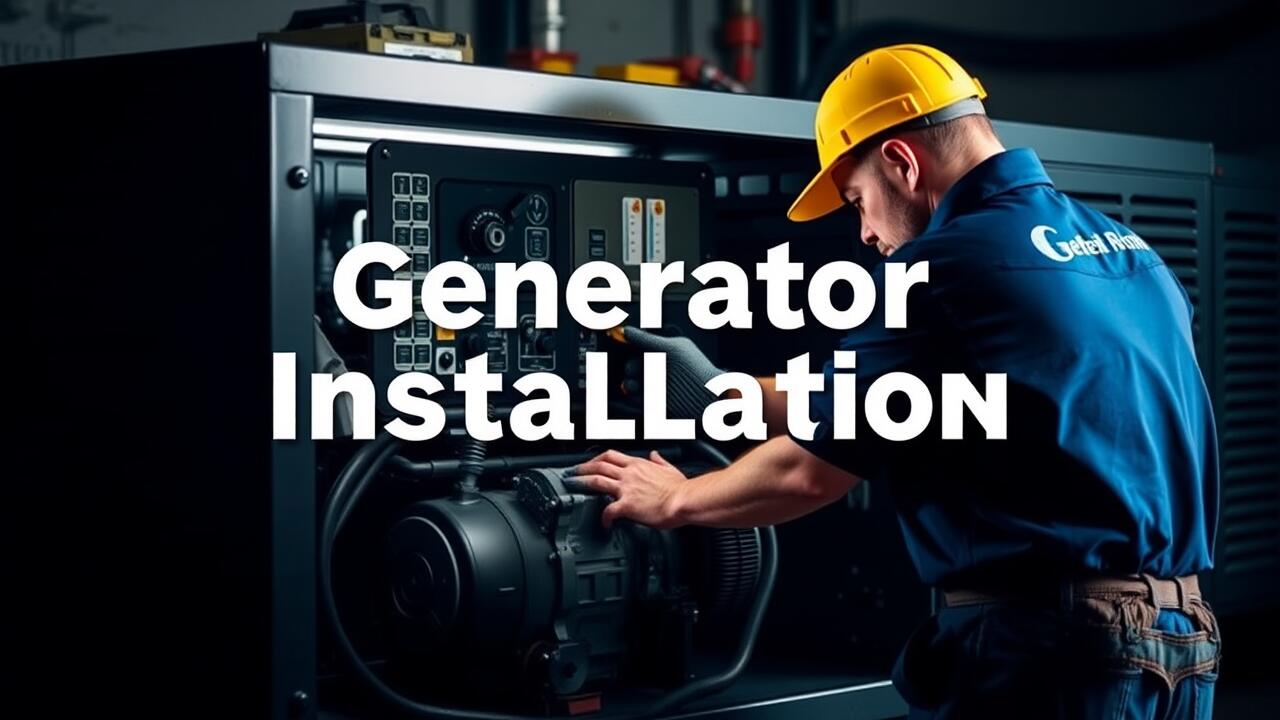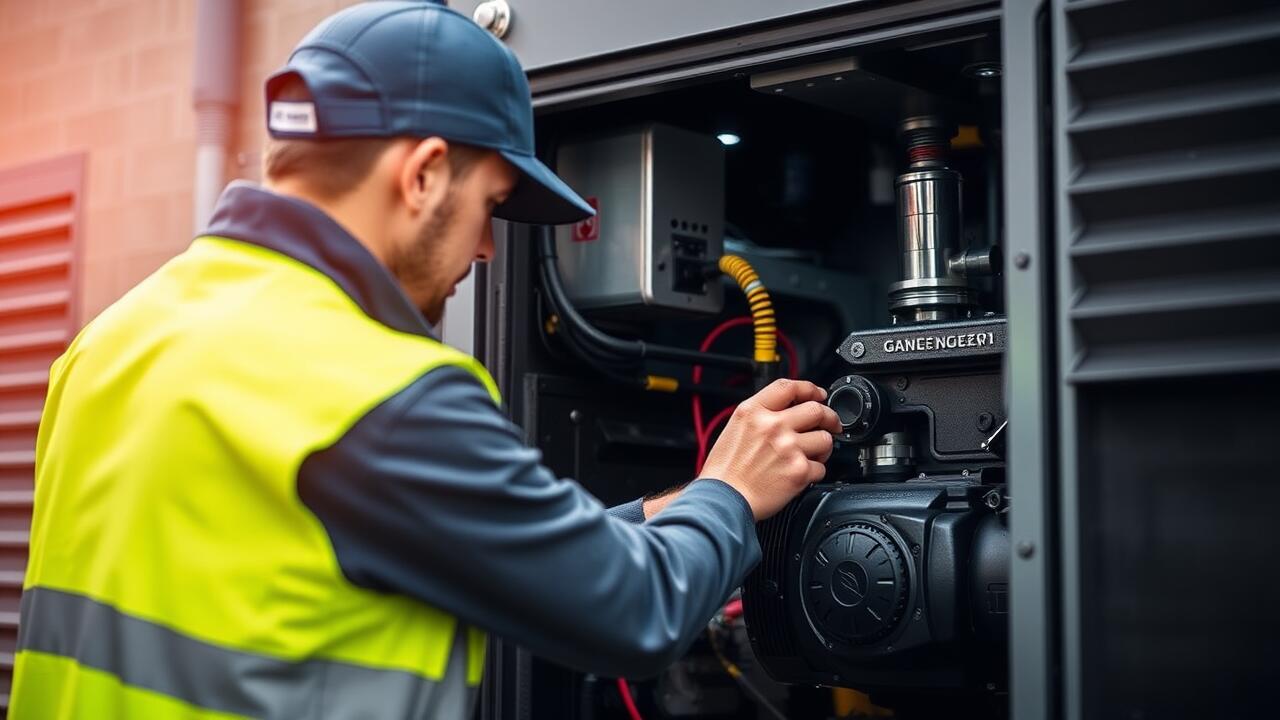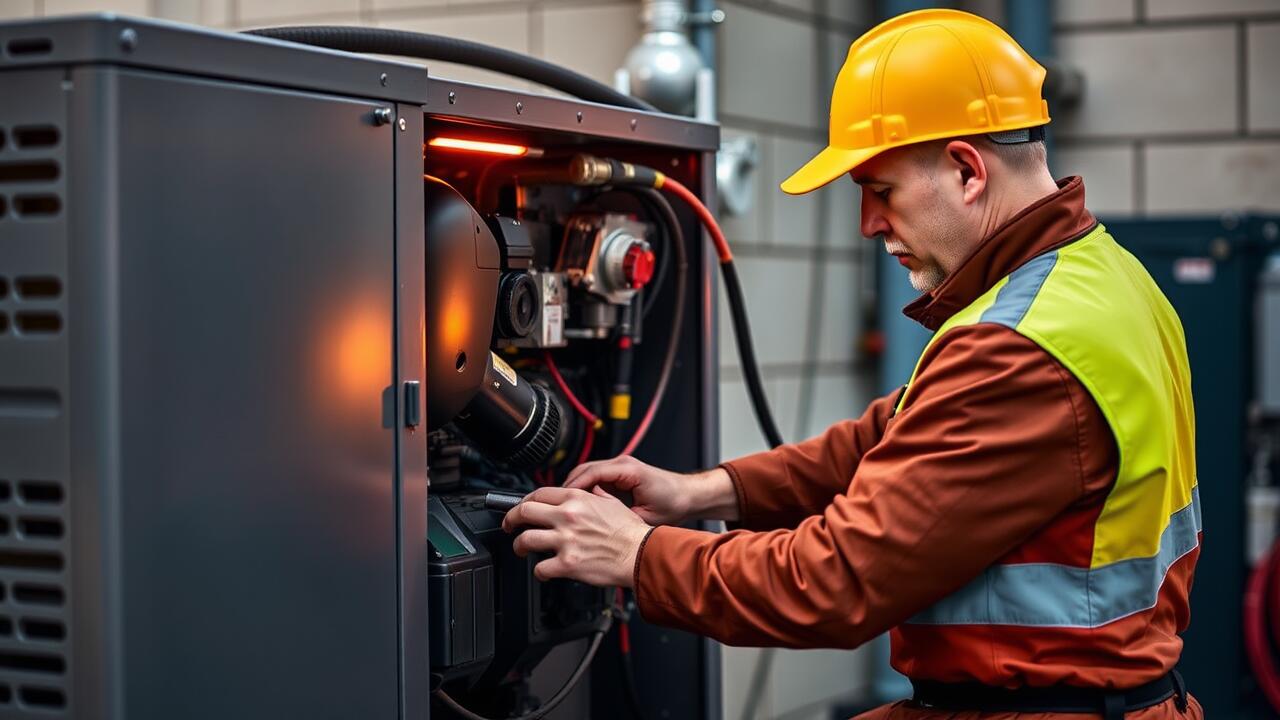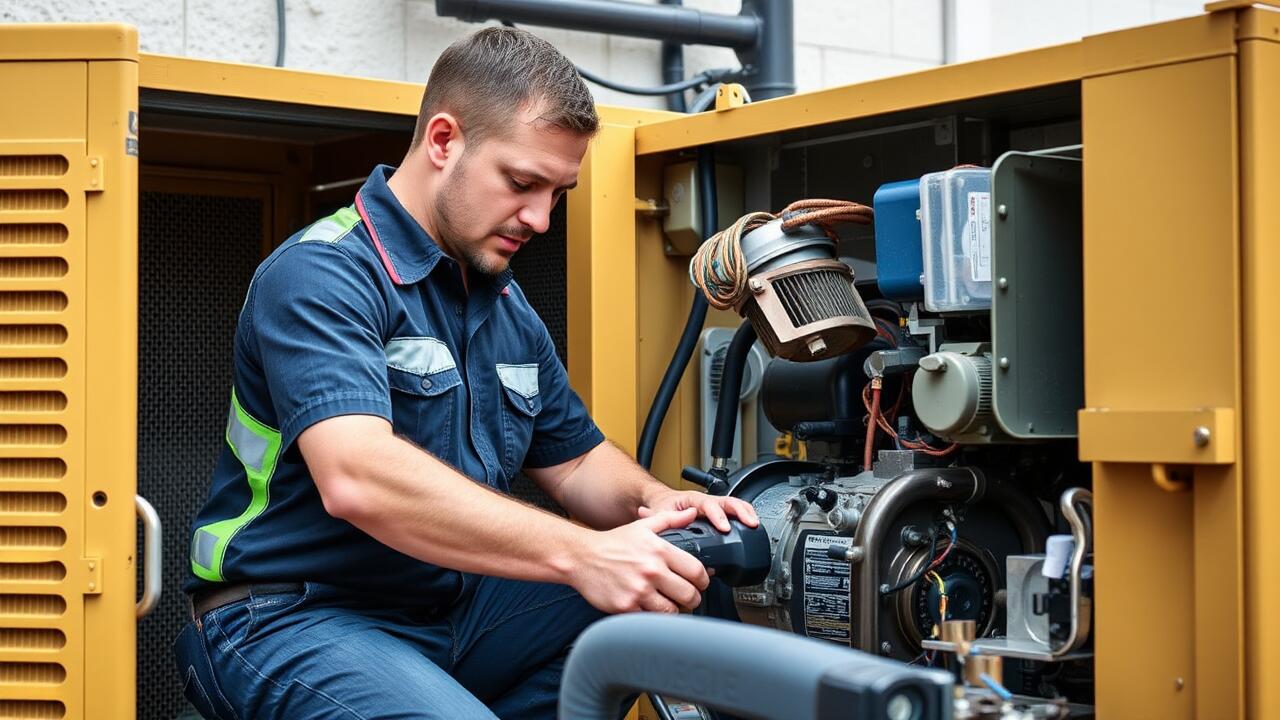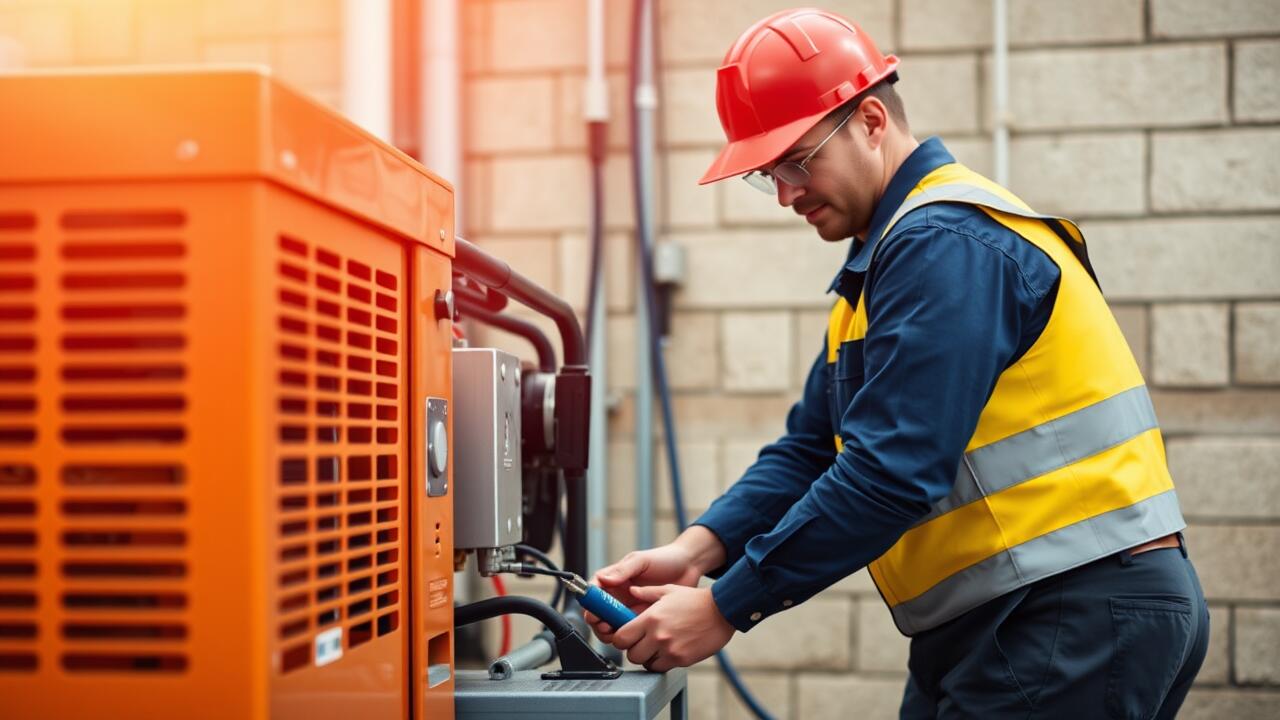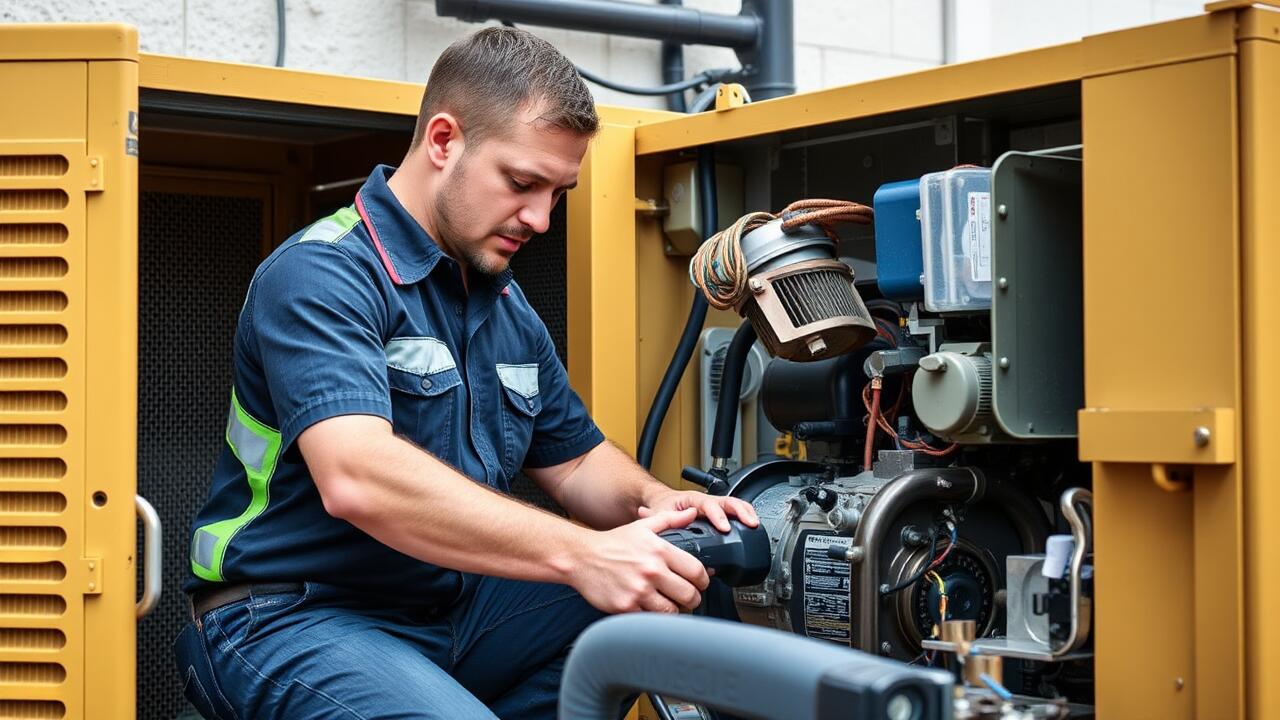
Fuel Types for Generators
When selecting a generator for a 3,000 sq ft house, it is essential to consider the type of fuel it will use. Gasoline generators are widely available and often more affordable upfront. They can, however, be less efficient and may require more frequent refueling, especially during extended power outages. Propane generators offer cleaner emissions and longer storage life for fuel. They can be more convenient for those who prefer not to store gasoline. Diesel generators are known for their durability and fuel efficiency, making them suitable for larger homes or continuous use.
Each fuel type has its unique advantages and disadvantages. The choice may depend on personal preferences regarding convenience, availability, and environmental considerations. Generator Installation Montrose, Houston, might emphasize local resources that can help homeowners navigate the options, as well as the necessary setup and maintenance for a chosen fuel type. Understanding these factors can significantly impact the overall experience of generator ownership.
Pros and Cons of Gasoline, Propane, and Diesel
Gasoline generators are popular due to their ease of availability and lower initial cost. They tend to be lightweight and portable, making them a convenient choice for many homeowners. However, gasoline can be less efficient as a fuel source over time, with a shorter lifespan for the generator itself. Additionally, gasoline generators typically produce more noise, which may be a drawback for some users who are sensitive to sound.
Propane generators present a cleaner fuel option, producing fewer emissions and thus being more environmentally friendly. They often have a longer shelf life compared to gasoline generators, making them a practical choice for extended use. On the other hand, propane can be less accessible depending on the location, and the initial cost of propane generators can be higher. Diesel generators are known for their durability and high efficiency, particularly for heavy-duty applications. Generator Installation Montrose, Houston, can facilitate the process of finding the right generator, but diesel fuel might be more expensive and can lead to higher maintenance costs over time.
Noise Levels and Regulations
Noise levels are a significant consideration when selecting a generator for a residential property. Many generators produce a considerable amount of noise during operation, which can be disruptive not only to the occupants of the home but also to neighbors. Local regulations often dictate maximum allowable noise levels, especially in densely populated areas. For a smooth generator installation Montrose, Houston, homeowners should familiarize themselves with these regulations to ensure compliance and avoid potential fines.
Understanding local noise ordinances is crucial for maintaining a peaceful environment. These laws may vary widely depending on the specific zone in which a home is located. Some areas have strict guidelines on operation times or maximum decibel levels during certain hours. When planning for a generator installation Montrose, Houston, it's wise to check with local authorities or neighborhood associations to ensure that the chosen generator meets all necessary requirements and adheres to community standards.
Understanding Local Noise Ordinances
When considering generator installation Montrose, Houston, it's important to be aware of local noise ordinances. Many municipalities have specific regulations regarding acceptable noise levels during various hours of the day. These guidelines help maintain a peaceful environment for residents while accommodating the needs of those who rely on generators for power. Understanding these regulations can help you select a generator that operates within the legal limits set forth by your community.
In addition to compliance with noise ordinances, individuals should also consider the generator's location during installation. Positioning the generator too close to neighboring homes can lead to noise complaints, even if the unit itself is within legal sound limits. Adequate distance and soundproofing measures may be necessary to ensure harmony with neighboring properties while still providing the power needed for a 3,000 sq ft house.
Budget Considerations
When considering the budget for a generator suitable for a 3,000 sq ft house, you must account for both the purchase price and the ongoing operating costs. Different brands and models come with varying price tags, influenced by their capacity, features, and fuel types. It’s important to evaluate your specific power needs to avoid overspending on unnecessary features. Additionally, the cost of fuel should also be factored into your overall budget, as it can significantly affect long-term expenses.
Another key aspect to remember is the installation cost, which can vary widely based on the specifics of your property and the complexity of the installation. Professional services, such as Generator Installation Montrose, Houston, are recommended to ensure safety and compliance with local codes. It's wise to seek multiple quotes and compare estimates to find a balance between quality and affordability. Making informed decisions about initial investment and installation will help in managing costs effectively for years to come.
Factors Affecting the Cost of Generators
Several factors contribute to the overall cost of generators, including the type and capacity needed for your specific requirements. Larger generators, generally necessary for a 3,000 sq ft house, tend to be more expensive than smaller models. Features such as automatic startup, fuel type compatibility, and advanced monitoring systems can also add to the initial purchase price. Additionally, high-quality brands may offer better warranties and customer support, which can impact long-term value.
Installation costs vary significantly depending on the complexity of the setup and your location. Generator Installation Montrose, Houston may have different pricing structures compared to other areas. Factors such as permitting fees, site preparation, and any necessary electrical upgrades will play a role in the final cost. It's essential to factor in these expenses when budgeting for a generator to ensure a complete understanding of your financial commitment.
FAQS
What size generator do I need for a 3,000 sq ft house?
The size of the generator needed for a 3,000 sq ft house typically ranges between 20 to 25 kW, depending on the appliances and systems you want to power during an outage.
How do I determine my home's power needs?
You can determine your home's power needs by adding up the wattage of all the essential appliances and systems you want to run during an outage, such as heating, cooling, refrigeration, and lighting.
What fuel types are available for generators?
Generators typically run on gasoline, propane, or diesel. Each fuel type has its own pros and cons, including availability, storage, and cost.
Are there noise regulations I should be aware of when using a generator?
Yes, many localities have noise ordinances that regulate the allowable noise levels for generators. It's important to check these regulations to avoid penalties and ensure compliance.
What factors affect the cost of a generator?
The cost of a generator can be influenced by its size, fuel type, brand, and additional features such as automatic start, transfer switches, and warranties. Installation costs should also be considered.
